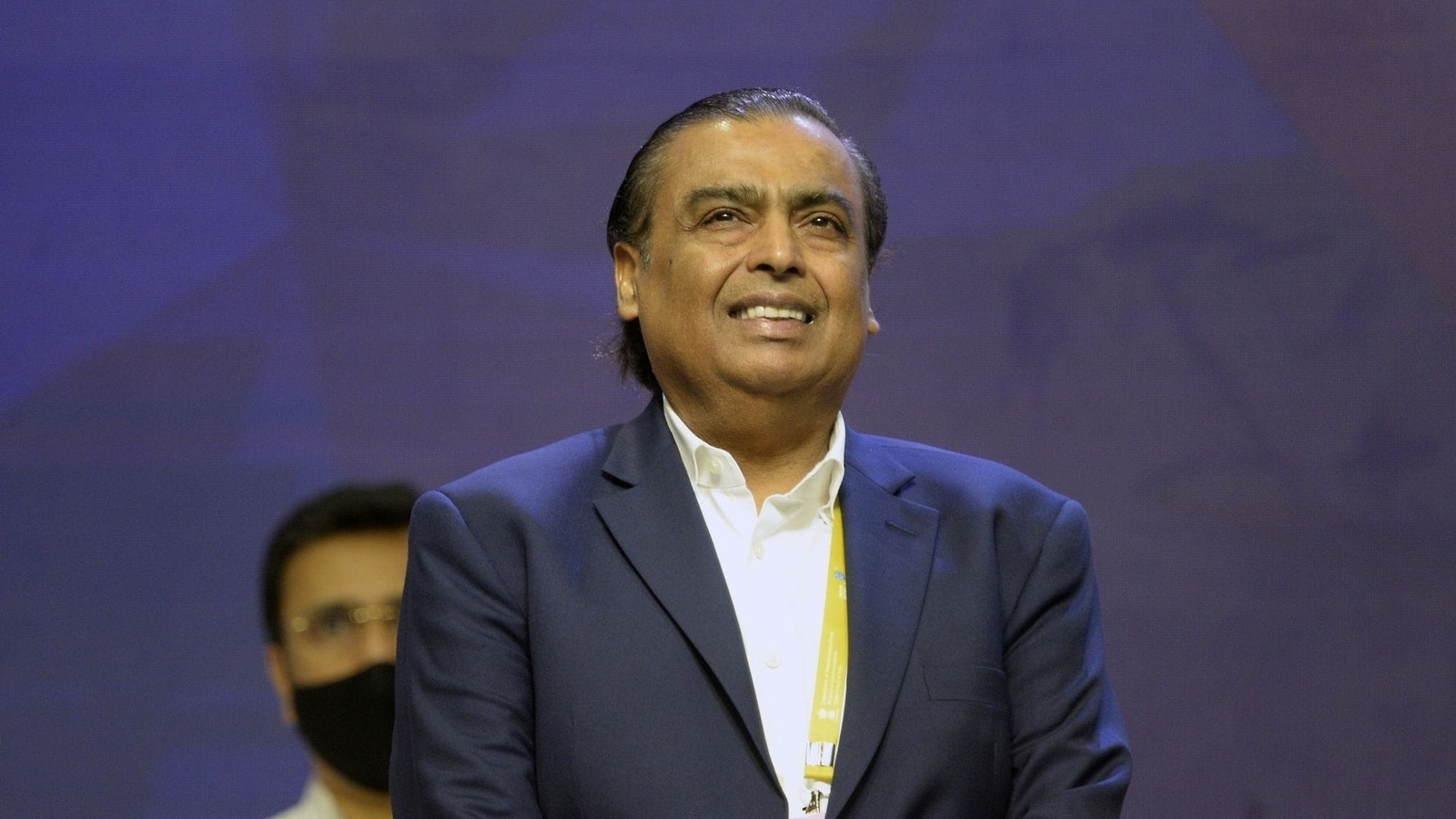Reliance JioMart’s Ruthless Decision: 1000 Employees Axed, 9000 More Jobs At Stake
JioMart's decision is going to shake employees' trust in the company

Mukesh Ambani supervised Reliance Industries’ online wholesale division JioMart has laid off nearly a thousand staff, according to reports. This comes as the company seeks to integrate its business through Metro Cash and Carry, which it recently bought.
According to a source, the latest round of layoffs is a component of a wider wave that would slash its 15,000-strong employees in the wholesale sector by two-thirds.

The source close to the organization mentioned, the company has requested 1,000 individuals on the ground, notably 500 executives at the company’s headquarters, to quit in the last few days.
As per the source, JioMart also intends to cut off more employees, with hundreds already placed on a PIP. After the corporation reduced its fixed pay compensation, the rest of the sales staff were placed on a variable payment system.
According to a source close to the situation, there has been some role overlapping with the accession of Metro’s permanent staff of 3,500 personnel. The business that launched the supermarket B2B price battle is likewise aiming to boost profits and cut losses.
JioMart plans to close over fifty percent of its 150 fulfillment centers. They supply groceries and miscellaneous products to local neighborhood shops.

The purchase of Metro Cash and Carry by Reliance Retail Ventures has been approved by India’s Competition Commission. The agreement was signed in December 2022 worth Rs 2,850 crore in cash.
Reliance Retail will be allowed to use Metro’s stores in cities such as Amritsar, Bengaluru, Ghaziabad, Hyderabad, Indore, Kolkata, Nasik, and Visakhapatnam among others as part of this transaction.

According to JPMorgan, Metro’s assets might further boost Reliance’s B2B offering. “According to RIL, the purchase will give the company “access to a large reservoir of registered Kiranas, as well as additional institutional customers and a strong supplier network.”
RIL has concentrated on the massive Kirana store environment in India over the years. Its purchase of METRO’s wholesale sector is positive, according to JPMorgan analysts in research.
JioMart is part of Reliance Retail, which is currently led by Mukesh Ambani’s daughter, Isha Ambani Piramal. JioMart provides lower pricing than other distributors.
According to top managers at JioMart, the company previously observed a spike in quarterly orders via WhatsApp. JioMart and WhatsApp teamed up in August 2022 to combine their platforms.
It provided customers with a seamless buying experience straight into the social messaging service. Customers may use this integration to browse the huge JioMart catalog, add goods to their cart, and complete payments without exiting the WhatsApp environment.

Jio Platforms’ collaboration with Meta, which has a major minority stake in Jio Platforms, opened the path for this strategic cooperation.
A higher level of service to enroll kiranas onto the B2B platform, and credit for operating capital is also provided. Its Kirana digitization strategy assists companies in reaching merchants and providing better analytics.
Reliance Retail extended its physical store system by over 3,300 new shop openings during 2022-23. It brought the total number of shops to 18,040 after the year.
During the year, the company also expanded its supply chain infrastructure by adding 12.6 million square feet of warehouse space.
Reliance Retail stated in its quarterly earnings report for the fourth quarter of the fiscal year 2023- Q4FY23- that JioMart accomplished its best quarter, with robust growth throughout categories and improvements in all key indicators.
The company stated that their grocery digital commerce operations, JioMart and Milk Basket, had continued to thrive. There is a strong emphasis on expanding the catalog, bringing new merchant selling partners onto the site, and boosting the non-grocery portion.
Reliance Retail’s online wholesale business was hoping to join the digital trade network on the seller applications side earlier this year after Reliance-backed logistic platform Grab also entered ONDC as a logistics partner.
“To that aim, a few of our styles, such as Trends and Urban Ladder, are presently accessible on the JioMart framework, and we are simultaneously working on integrating other formats into JioMart,” stated an official.
According to analysts, Reliance Retail currently has a market share of twenty percent in structured food and grocery operations. Also, nearly tripled the store count of its closest competitor ‘More’ in the segment.
Traditional distributors are being replaced by Reliance’s business-to-business (B2B) structure for Kirana retailers. The expansion of Metro’s permanent staff of 3,500 individuals would result in duty overlap at both the backend as well as online sales activities, according to officials.
Furthermore, after launching a pricing war in the food B2B area with severe discounting, prompting established distributors to put pressure on to cease supply from consumer goods businesses, JioMart is aiming to focus on boosting margins and lowering losses, according to authorities.
However, Reliance firing off employees rather than relocating them to one of its numerous other companies may illustrate how the Indian tech sector is under pressure. Several unicorn firms have laid off workers this year.
Major corporations including Google, Meta, and Amazon additionally laid off people from their Indian departments.
Recently, German operator Metro AG announced the sale of its 31-store Indian cash-plus carry operation to Reliance Retail worth Rs 2,850 crore.
Metro Cash and Carry India’s network of stores and eB2B application connect over 3 million B2B clients in India, with 1 million being frequent buyers.
Reliance announced its foray into the rapidly expanding consumer goods industry last year.
Reliance recently reintroduced Campa Cola after purchasing it from Pure Drinks, as well as its line of products in the home as well as personal care space.
Organized retail and wholesale continue to account for only 10-15% of India’s total FMCG sales. Corporations such as Reliance, which controls more than half of the organized retail industry, are still gaining greater supply control.
According to experts, manufacturers of consumer goods are increasingly turning to online B2B as a supplement to their existing distribution system. Or, as a replacement for unproductive traditional distributors.
According to strategy advisory firm Redseer, at scale, eB2B platforms are anticipated to generate an RoI of 50%, far outperforming offline retail, and cash and carry models. However, experts say there isn’t much potential for new players to entice stores away from distributors.
“Consumer packaged product distribution is the dominance of the major FMCG companies, and its distribution is their moat,” stated an unnamed industry official.
FMCG businesses often pay distributors 3% to 7% to collect orders from merchants and deliver them to them at the store’s door.
“Value-added services, such as providing credit by combining startups as well as banks with ‘buy now pay later’ options, will also help distinguish your services from traditional distributors while establishing long-term connections with key partners, Kiranas, and institutions,” Koteshwar said.
Due to economic uncertainty, many businesses are laying off workers. However, layoffs are a component of a bigger trend in which tech businesses are reducing employees and halting hiring as shareholders become increasingly concerned about the possibility of a recession.
Reliance isn’t often renowned for layoffs, but the company’s decision to reduce thousands of staff demonstrates how challenging the job market may end up being for new job searchers this year.
Proofread & Published By Naveenika Chauhan




